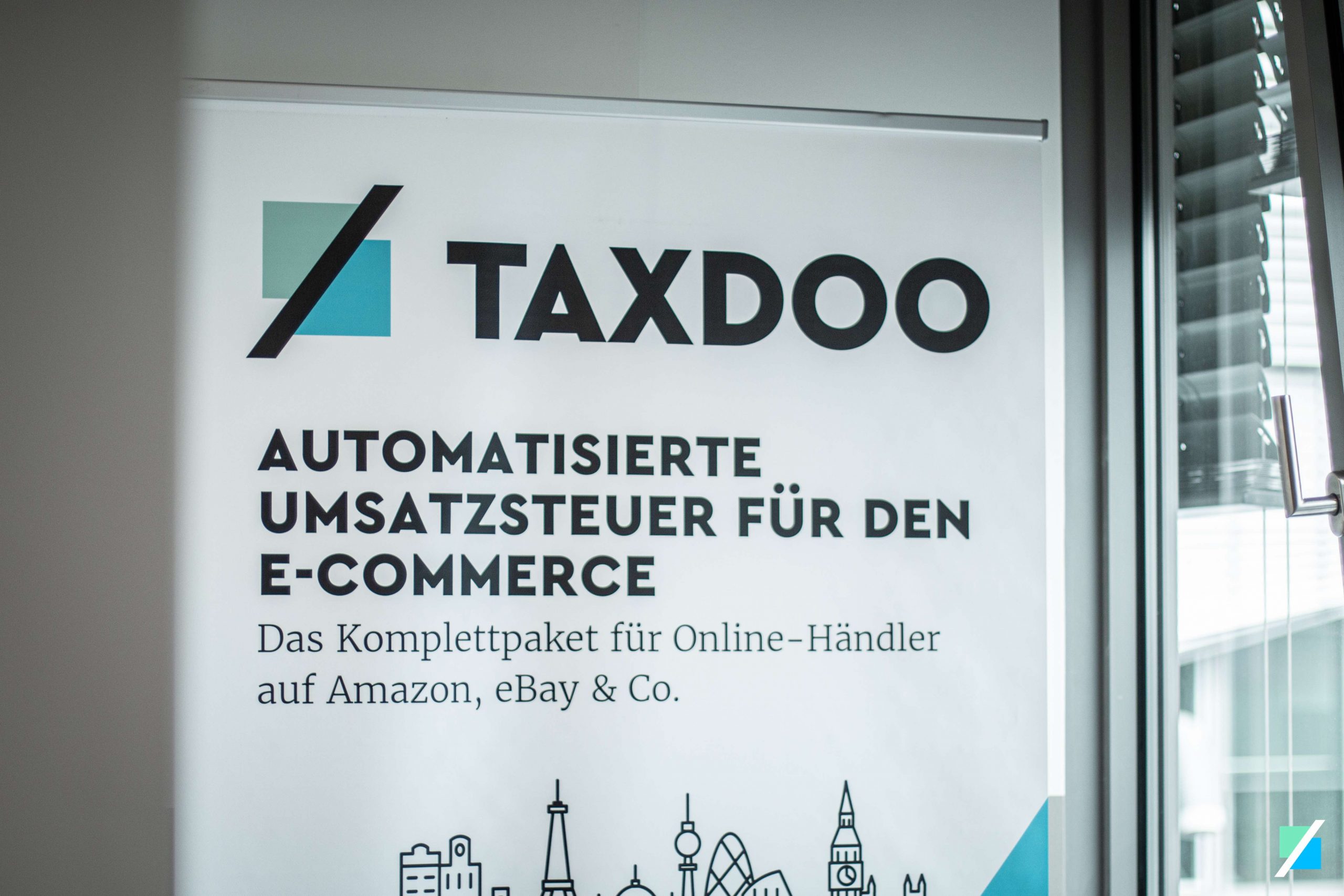What eBay traders should know about Value Added Tax

Almost all (98 percent) commercial German eBay-dealers also sell their products across borders.
However, cross-border shipping in particular poses a number of VAT challenges that must be kept in mind in order to avoid high financial risks.
If these risks are to be controlled, a distinction must be made between two types of cross-border supply:
- deliveries to other EU countries and
- Deliveries to non-EU countries.
Cross-border shipping via eBay to other EU countries
At cross-border Mail order companies regularly ask themselves the question, in which state the respective supply is taxable in.
Within the EU, it is important to distinguish whether the buyer is an entrepreneur or a non-entrepreneur (e.g. a private individual).
In practice, the distinction is based on whether the buyer uses a VAT ID number (entrepreneur) or not (non-entrepreneur).
Hint: The distinguishing criteria are generally even more complex. Ultimately, the question of whether the buyer uses a VAT ID number is also sufficient from a legal point of view.
Deliveries to private individuals – delivery thresholds
Cross-border supplies to private individuals within the EU are generally taxed where they begin.
Example: Trader Anton Meier sells goods worth a few euros to France for the first time via eBay. He ships his products from his German warehouse and pays tax on them in the country in which delivery to the customer begins-usually Germany.
However, this regulation is only partially effective. In order to avoid a situation in which export-strong EU countries receive a large part of their VAT revenue from online trading, the EU-wide mail order scheme is in place.
The mail-order trade regime states the following.
For deliveries to private individuals, so-called delivery thresholds apply. These are thresholds that lead to the place of delivery being shifted to the country of destination if goods worth this delivery threshold are dispatched to the respective EU country.
(Excursus for interested partiesThe country-of-destination principle should in principle apply to all cross-border supplies under VAT law. We will see in the context of the following explanations that, depending on the type of deliveries, the most varied mechanisms are used for this purpose, which in many places make VAT law appear complicated and formalistic).
The delivery threshold is measured on the basis of the net amounts of sales and is related to a calendar year. If the delivery threshold is exceeded, the tax liability in the country of destination applies for the remainder of the calendar year and for the entire following calendar year.
Only deliveries to private individuals are included. Deliveries to companies are excluded, as these are subject to different regulations, as explained in the following section.
Example: Dealer Anton Meier sold clothes on eBay in 2018 to customers in France. To date, he has earned a net profit of 40,000 euros. Since France has a delivery threshold of 35,000 euros (net), Anton Meier already pays tax in France on deliveries exceeding 35,000 euros. He must do the same with all subsequent deliveries to France in 2018.
Continued example: In 2019 Anton must pay tax on all deliveries to France in France. Among other things, he has to take into account that from the gross amount he has deposited in eBay, he will no longer deduct 19 percent German, but 20 percent FrenchValue Added Tax .
Height of the delivery thresholds?
The delivery thresholds should in principle be 100,000 euros for each EU state. However, each EU state has the right to lower these to 35,000 euros if it fears that it will lose too much Value Added Tax to other EU states.
Most EU countries have now made use of this right. Only four states therefore still have a delivery threshold of 100,000 euros (or converted into the respective national currency).
These include:
- Germany,
- Great Britain,
- Luxembourg and the
- Netherlands.
A detailed overview of all delivery thresholds, including the amounts of the EU countries that are not part of the monetary union, is available, here to find.
Deliveries to business tax-free if the documentation is correct
Companies from other EU countries also regularly buy from German eBay traders. If the goods are then shipped from Germany to other EU countries, this is known as an intra-Community delivery.
The country-of-destination principle also applies in this case, with the exception that it is not the seller who must declare delivery in the country of destination, but the buyer. The buyer pays tax on a so-called intra-Community acquisition. For this reason, the seller’s delivery is tax-exempt.
However, the supply is only exempt if the following three conditions are met.
- The buyer must present a valid VAT ID number. The seller is obliged to check the validity of this number via
to have the Federal Central Tax Office confirm this. - The seller has produced a proper invoice in which he does notValue Added Tax show any, lists the VAT ID number of the buyer and makes a note of the tax exemption: Tax-free intra-Community supply according to § 4 No. 1 letter b) UStG in connection with § Section 6a paragraph 1 of the German Turnover Tax Act. This is the so-called book evidence.
- In addition, the seller must also be able to prove the actual receipt of the goods by the buyer by means of suitable documents. This is the so-called proof of receipt. When trading on eBay, this is likely to be the track and tracing protocols of the respective logistics companies.
It is important that a tax auditor must be able to check these requirements without much effort or time. This means that book and document proof must be linked to each other.
This can certainly also be done manually using a staple. eBay traders with extensive cross-border deliveries should map this as automatically as possible using a uniform ID feature.
Subsequent notification of the VAT ID number?
In most cases, when selling on eBay, the foreign buyer will subsequently provide his VAT ID number, thus identifying himself as an entrepreneur.
He will then Value Added Tax ask for reimbursement of the costs and point out that you have to settle up with him net.
How can you proceed in such a case?
There are two options.
The first option is to inform the buyer that you are not obliged to do so for VAT reasons.
The second option is to refund the Value Added Tax buyer. In addition, the following must be ensured.
- Confirmation of the UStID number via the Federal Central Tax Office
- Provide evidence of documents (e.g. track and tracing log)
- Cancellation of the old invoice with a stated Value Added Tax
- issue of a new invoice without Value Added Tax and with reference to a tax-free intra-Community supply and the VAT ID number of the purchaser
Cross-border shipping via eBay to non-EU countries
For deliveries to countries outside the EU – the so-called third countries – the VAT situation is different.
In this case, too, the country-of-destination principle applies in most cases, since in many countries a so-called import turnover tax is payable on importation – for private individuals and companies.
Therefore, it is a general rule that deliveries to third countries are Value Added Tax exempt from the This applies regardless of whether the deliveries are to a private individual or a company.
deliveries to the Canary Islands and Co. also tax-free
However, third countries include not only countries outside the EU, but also so-called special economic zones within the EU.
These special economic zones include, for example, Heligoland, Andorra, Gibraltar or the Canary Islands. These geographical areas are regarded as third countries from a sales tax perspective. Deliveries to these countries are therefore generally also Value Added Tax exempt from VAT.
Special case Switzerland from 2019
Switzerland, which is not a member of the EU, will introduce its own mail order regulations next year. This change in the law may lead to tax liability for some eBay traders in Switzerland.
What needs to be taken into account is explained in detail here.
Tax-free if the documentation is correct
Deliveries to third countries are tax-free.
What initially seems very straightforward and even advantageous, however, involves some challenges.
eBay traders who ship tax-free to third countries have to fulfill extensive verification requirements.
Similarly to tax-free intra-Community supplies, accounting and supporting documents must be kept for export supplies.
- The seller must issue a proper invoice in which he does not Value Added Tax show any and which makes reference to the tax exemption by means of a note: Tax-free export delivery according to § 4 No. 1 letter a) UStG in connection with § 6 para. 1 UStG. This is the so-called book evidence.
- In addition, the seller must be able to prove the actual receipt of the goods by the buyer by means of suitable documents – the so-called proof of receipt. When trading on eBay, these are likely to be the track and tracing protocols of the respective logistics companies.
As in the case of intra-Community supplies, the accounting and supporting documents must be linked either manually or automatically.
Financial risks and the ECJ as the last lifeline
As shown, the formal requirements for tax-free deliveries within the Community and export deliveries are high.
In practice, mistakes often occur in this area. This is risky, as tax-free deliveries have always been a focus of audits by the tax authorities.
Considering that in case of doubt, the tax office will assess both intra-Community and export supplies as taxable persons if the evidence is missing, the financial risks can be quickly identified
Example: In 2016 and 2017 Anton Meier made tax-free export deliveries and intra-Community deliveries of 100,000 euros per year. In the course of a Value Added Taxspecial audit, the auditor discovered that Anton had not kept any documentary evidence. In the context of the amended Value Added Taxnotifications for the years 2016 and 2017, Anton must therefore pay a total of almost 32,000 euros (= 19 percent of 200,000 euros) in Value Added Tax arrears.
However, there are now various lifelines. These often come from the highest European financial court, the European Court of Justice (ECJ).
The European Court of Justice last decided in 2016 that formal criteria, such as proof of evidence, must not be decisive for the tax exemption of a delivery.
However, the relevant judgements should only be used if the child has already fallen into the well.
Cross-border shipping with eBay-the Value Added Taxcompliance must be right
Due to the reach of eBay, cross-border shipping regularly leads to new sales markets. Insofar as the main sales tax risks are controlled, the opportunities outweigh the risks.
However, eBay traders should first create structures that are as automated as possible to fulfill all their Value Added Taxobligations, so that risks cannot accumulate undetected over many years into serious financial threats.
As a rule, a tax audit is hardly more frequent than every 5 to 10 years. This is a lot of time for errors in Value Added Taxcompliance to accumulate into serious financial risks.
What does Taxdoo do?
Taxdoo can automatically read raw data from marketplaces (e.g. eBay) and ERP systems (e.g. plentymarkets and JTL) and
- Create accounting exports,
- report your sales abroad,
- monitor delivery thresholds on a daily basis,
- document shipments, and
- much more.
We have also opened our API to external developers. This means that transactions from all shop systems and ERPs can be imported into Taxdoo without much effort.
Simply click here and book a live demo in which we personally explain the advantages of our automated Value Added Taxcompliance to you and/or your tax advisor via screen transmission.
Weitere Beiträge

Small business regulation and e-commerce
